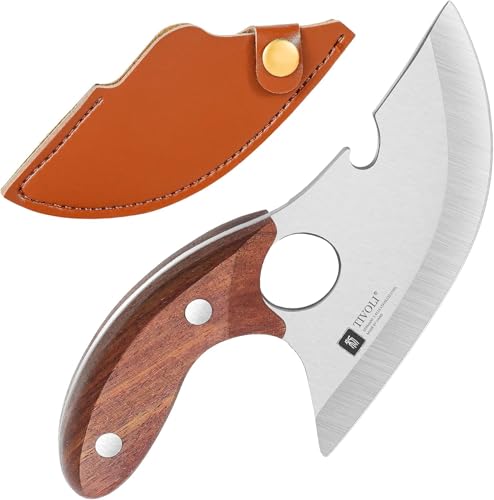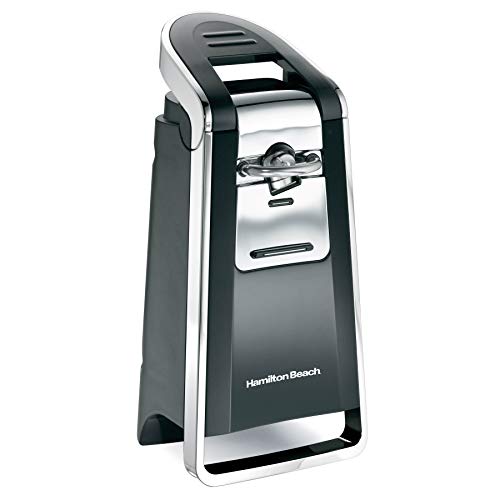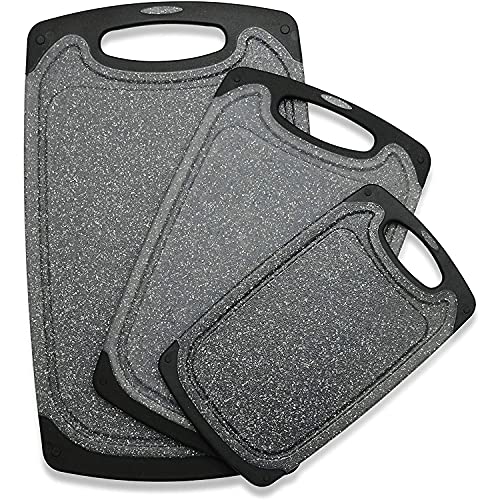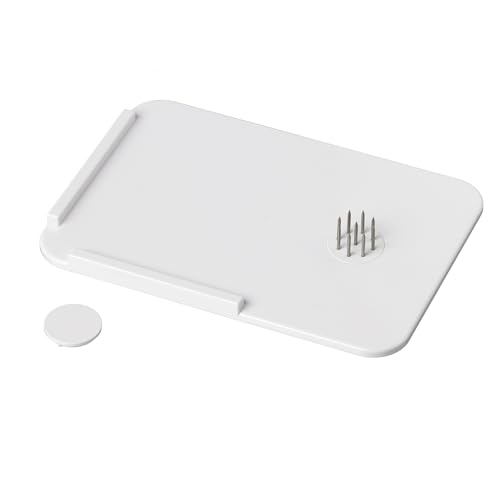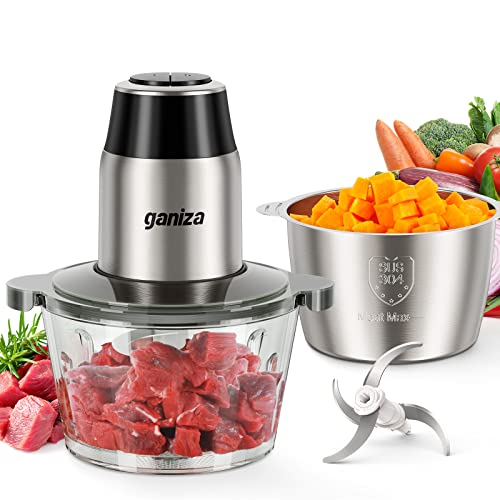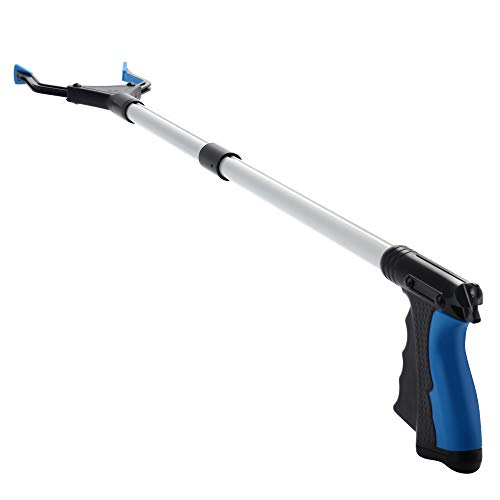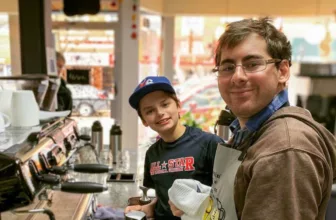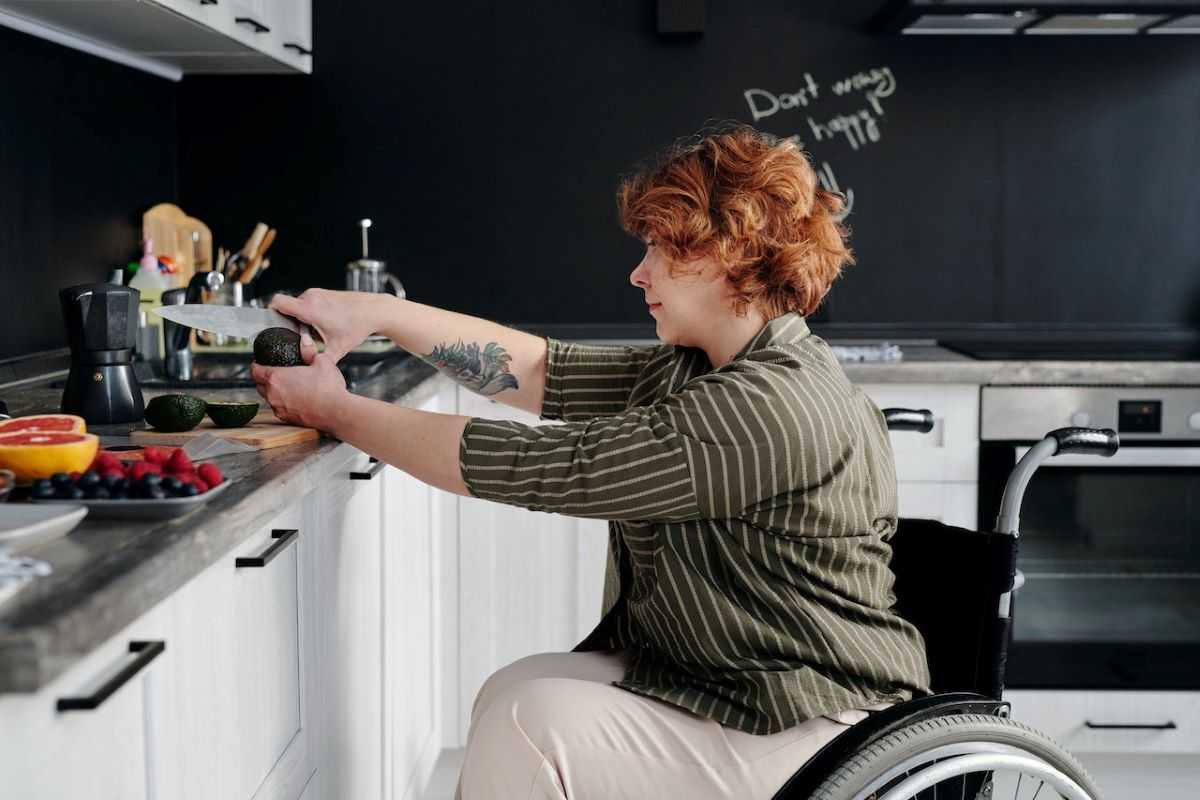
These cooking hacks empower people with disabilities to enjoy the culinary experience and embrace newfound independence in the kitchen. Cooking is a fundamental life skill that allows us to nourish ourselves and experience the joy of creating delicious meals. For people with disabilities, cooking can present unique challenges, but with a little creativity and adaptation, the kitchen can become a welcoming place despite limited hand function, fatigue, chronic pain, and other mobility challenges.
Cooking with a Disability: Prepping Ingredients Smartly
Prepping ingredients smartly is a key aspect of cooking hacks for people with disabilities. It involves planning and organizing the cooking process in a way that minimizes the effort and time spent on ingredient preparation.
One way to do so is through simplifying recipes. By choosing recipes that have fewer steps, or minimal prep, you can quickly cook healthy and delicious meals on your own. If possible, opt for pre-cut and pre-washed fruits and vegetables to eliminate the need for intricate cutting. You might also consider frozen or canned alternatives, as they have the same nutritional value but require little to no chopping or additional prep.
Another option is having a designated meal prep day. This allows you to plan to cook when you have more energy or additional free time. This also allows you to ensure that the necessary ingredients are ripe and that you’ll have less stress planning and making meals every day of the week.
Utilize Adaptive Tools and Equipment
There is a wide array of adaptive cooking tools available that cater to various disabilities. Some examples of helpful kitchen tools include:
Ergonomic Knives and Peelers
These adapted knives and peelers feature larger, easy-to-grip handles that reduce strain on the hands and provide a more secure grip. Some models have contoured handles or weighted bases to provide better balance and control during cutting and peeling tasks.
One-Handed Cutting Aids
For cooking with limited hand function, one-handed cutting aids can be invaluable. Rocker knives use a rocking motion to cut food items and can be used with one hand, making it easier to chop vegetables and fruits.
Automatic Can Openers and Jar Openers
Electric can openers and jar openers are perfect for people with limited hand strength or dexterity. They make opening cans and jars effortless with the push of a button.
Electric Mixers
Handheld or stand mixers can reduce the effort required for mixing and blending ingredients. They are especially beneficial for recipes that involve extended mixing times.
Non-Slip Cutting Boards and Mixing Bowls
These kitchen essentials feature anti-slip surfaces or suction bases, preventing them from sliding or moving during food preparation and providing stability and safety.
Food Processors and Choppers
Food processors can chop, slice, and dice ingredients quickly and efficiently. They are excellent alternatives to traditional knife work and minimize hand strain.
Adaptive Kitchen Utensils
Various adaptive utensils are designed to make cooking and eating easier for disabled people with hand or arm limitations. These include bendable utensils, utensils with angled handles, and utensils with built-up grips for better control and comfort.
Reach Extenders and Grabbers
These tools enable disabled cooks to access items placed out of reach in cabinets or on shelves without straining themselves.
Anti-Fatigue Mats
Standing for extended periods in the kitchen can be challenging for some individuals with chronic pain and other health challenges. Anti-fatigue mats provide cushioning and support to reduce fatigue and discomfort.
One-Pot and Slow Cooker Tips for Cooking with a Disability
One-pot dishes and slow cookers are a culinary boon for chefs with disabilities. These cooking methods not only simplify the cooking process but also reduce the need for constant supervision and active participation. One-pot dishes and slow cookers provide a fantastic opportunity for people with disabilities to enjoy a wide variety of delicious and nutritious meals without the need for extensive cooking skills. Utilizing these methods, the kitchen can become a space of culinary exploration, creativity, and convenience.
In addition to the benefit of being able to cook delicious meals from all around the world, one-pot and slow cooker meals are relatively easy to clean up.
Utilize Voice-Activated Technology as a Simple Disability Cooking Hack
Embrace the power of voice-activated technology like smart speakers and assistants. Use voice commands to set timers, search for recipes, convert measurements, and perform other kitchen tasks. This hands-free approach can be especially helpful for those with limited mobility or visual impairments.
Cooking with Support
Cooking with support exemplifies the beauty of communal cooking, where everyone's contributions are valued, and the result is not only a delicious meal but also cherished memories and a sense of accomplishment. Whether it's cooking with family, friends, or caregivers, the shared experience in the kitchen enriches the culinary journey and strengthens the bonds between individuals, making it a heartwarming and fulfilling activity for all involved.
Additionally, by working as a team, tasks can be delegated based on each person’s strengths and abilities. This makes cooking efficient and can cut down on prep work and the need to multitask.
Embrace No-Cook and Semi-Cooked Options
No-cook and semi-cooked dishes can be lifesavers for individuals with disabilities. Explore salads, smoothies, wraps, and sandwiches that require minimal or no cooking. You can assemble these dishes with ready-to-eat ingredients, making them both nutritious and convenient.
Cooking hacks for people with disabilities are all about embracing adaptation and making the kitchen an inclusive space. By implementing accessible design, using adaptive tools, and exploring smart cooking techniques, individuals can gain independence and confidence in the kitchen. Remember, cooking is a journey, and the most crucial ingredient is a willingness to experiment, learn, and enjoy the process. Empowerment and culinary independence await – it's time to savor the joy of creating delicious meals, no matter the circumstances.
Coffee junkie. Spoonie. Writer about all things chronic illness and mental health. Friend of animals everywhere.








